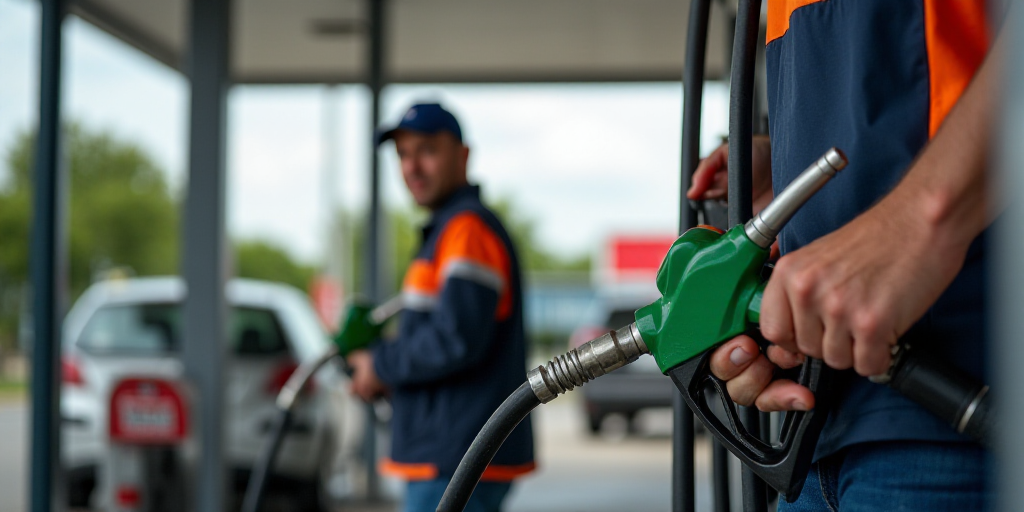Background on the Voluntary Agreement
As the voluntary agreement to lower gasoline prices, specifically Magna, to less than 24 pesos per liter approaches the end of its initial six-month period, experts in the sector predict that it is highly likely the agreement will be renewed until the end of 2025.
Key Players and Their Roles
Alejandro Monúfar, the general director of PETROIntelligence, stated that given the high level of participation from the sector, Pemex’s commercial strategy, and consistent compliance exceeding 90%, extending the agreement is highly viable.
Impact on Pemex and Gas Stations
Experts have noted that the implementation of this voluntary agreement has negatively affected both Pemex and gas station owners. However, its impact on curbing inflation has been minimal.
Current Status of the Agreement
Currently, 94% of gas stations in Mexico adhere to this voluntary agreement. In 27 out of the country’s 32 states, gasoline is being sold below the set price cap.
- In Campeche, Oaxaca, and Zacatecas, the average price is around 24 pesos per liter.
- In Baja California Sur and Quintana Roo, prices slightly exceed the cap at 24.07 pesos and 24.71 pesos per liter, respectively.
Expert Opinions on Broader Impact
Andrés Gutiérrez, former president of the Mexican Association of Service Station Suppliers (AMPES) and current director general of CIEFSA, a fuel quality laboratory, suggested that lowering the diesel price instead of gasoline would have a more significant impact on inflation control.
Gutiérrez explained that the price cap has created distortions in competition among gas stations, as each station sets its prices based on product quality, employee training, and operational costs.
He emphasized that while price differences among gas stations may exist due to varying product quality or customer service levels, a price cap disrupts this natural market competition.
Pemex’s Financial Implications
Ramsés Pech, an energy and economy specialist, pointed out that Pemex has been the most affected entity due to this voluntary agreement. The company is sacrificing revenue by reducing gasoline wholesale costs to maintain the 24 pesos per liter price point.
“Pemex is sacrificing its income by reducing gasoline wholesale costs between 1 to 1.50 pesos per liter to maintain the 24-pesos-per-liter value. This will be reflected by the end of 2025, as their income decreases,” Pech stated.
Key Questions and Answers
- What is the voluntary agreement about? It’s an initiative to lower gasoline prices, specifically Magna, to less than 24 pesos per liter.
- Who are the key players involved? The main entities are Pemex, gas station owners, and industry experts.
- What has been the impact on Pemex and gas stations? The agreement has negatively affected both Pemex’s revenue and gas station owners’ finances, with minimal impact on inflation.
- What is the current status of the agreement? 94% of gas stations in Mexico adhere to the agreement, with prices below the cap in 27 out of 32 states.
- What do experts suggest for better inflation control? Lowering the diesel price instead of gasoline would have a more significant impact on inflation control.
- How has the price cap affected competition among gas stations? The price cap has created distortions in competition, as each station sets its prices based on product quality, employee training, and operational costs.
- How has Pemex been affected financially? Pemex is sacrificing revenue by reducing gasoline wholesale costs to maintain the 24 pesos per liter price point.






